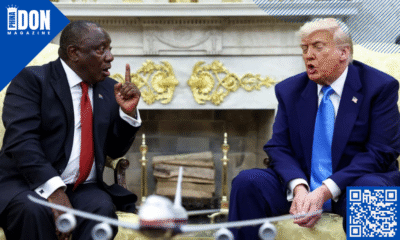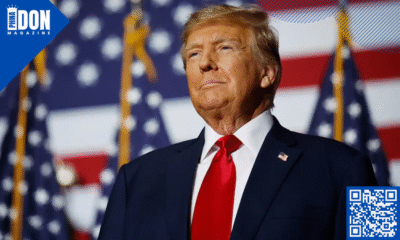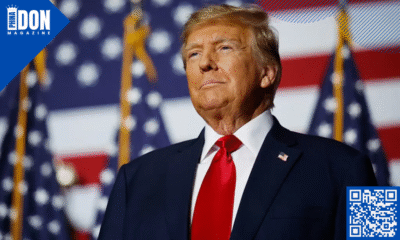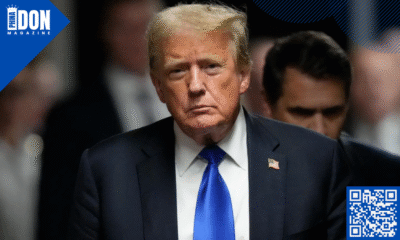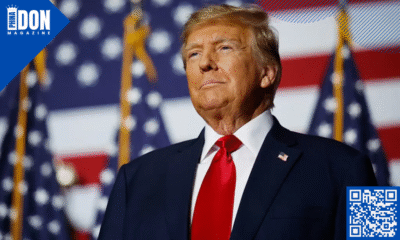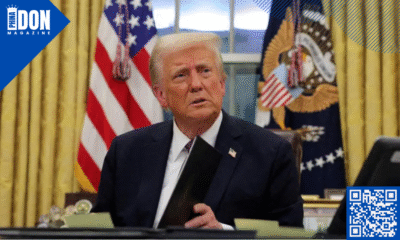Foreign
President Trump Signs Executive Order to Withdraw from UN Human Rights Council and UNRWA.
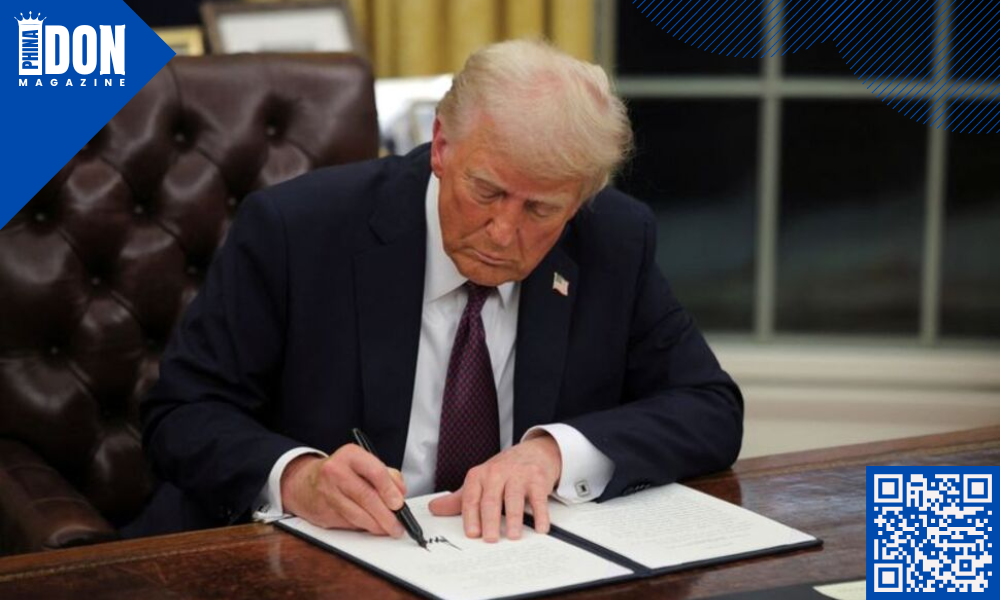
In a significant move, President Donald Trump has signed an executive order that initiates the withdrawal of the United States from the United Nations Human Rights Council (UNHRC) and the United Nations Relief and Works Agency for Palestine Refugees in the Near East (UNRWA). This decision, announced on Tuesday, reflects the administration’s ongoing critique of the United Nations and its agencies, which Trump asserts have not fulfilled their potential.
During the signing, Trump emphasized the need for fairness within the UN, stating, “I always felt the UN has always had tremendous potential, but it’s not living up to it.” This assertion underscores a broader sentiment within the administration regarding perceived biases against the United States and its allies.
Historically, the U.S. has been the largest donor to UNRWA, contributing nearly $500 million annually. However, following accusations from Israel regarding the involvement of UNRWA staff in attacks linked to Hamas, former President Joe Biden paused funding in January 2024. Consequently, U.S. Congress formally suspended contributions to UNRWA until at least March 2025.
The timing of Trump’s executive order coincides with Israeli Prime Minister Benjamin Netanyahu’s visit to Washington, highlighting the intricate relationship between U.S. foreign policy and the Israeli-Palestinian conflict. Trump has previously suggested that Palestinians may need to relocate from Gaza to neighboring Jordan and Egypt, reinforcing his administration’s controversial stance on the region.
This latest executive order is not an isolated incident; during his first term, Trump similarly cut funding to UNRWA, advocating for renewed peace negotiations between Palestinians and Israelis and calling for reforms within the agency.
In addition to withdrawing from UNRWA and the UNHRC, Trump has previously signed orders to exit the World Health Organization and the Paris Climate Agreement, signaling a broader shift in U.S. engagement with international organizations under his administration. As the political landscape evolves, the implications of these actions will continue to resonate in both domestic and international arenas.
Foreign
Niger to Nationalize Uranium Mine Amidst Shifting Alliances.
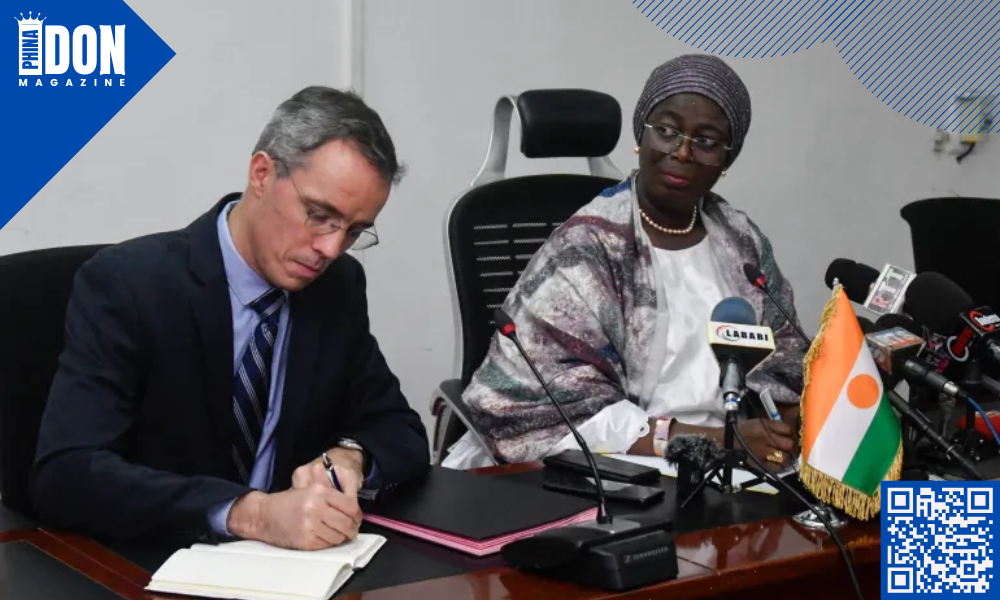
Niger has announced plans to nationalize the Somair uranium mine, currently operated by French nuclear firm Orano. This decision marks a further departure from France, Niger’s former colonial power, and a potential realignment with Russia. The military government, in power since a 2023 coup, accuses Orano of unfairly benefiting from the mine’s output since its launch in 1971. Orano, which holds a 63% stake in Somair, disputes the allegations and has threatened legal action, citing a “systematic policy of stripping mining assets.” This move follows Niger’s earlier removal of Orano’s operational control over key mines in the country. The nationalization reflects a broader trend in West Africa, with Mali and Burkina Faso also pursuing similar policies under military rule. The situation is further complicated by existing arbitration processes between Orano and Niger, including a recent lawsuit filed by Orano.
Foreign
Nigeria’s Chief Of Naval Staff Working Visit To Denmark.

On Monday 16 June 2025, the Nigeria Chief of the Naval Staff (CNS), Vice Admiral Emmanuel Ikechukwu Ogalla (Admiralty Medal) commenced a 3-day working visit to Denmark. The working visit which is at the instance of the Danish Navy aims to strengthen cooperation between both navies.
The visit saw the CNS take a short boat trip with the Admiral of the Danish Navy, Rear Admiral Søren Kjeldsen. In the company of the CNS was Ambassador T. A. Elias-Fatile, CDAai/Head of Mission, Embassy of Nigeria, in Sweden and the Nordic countries, the Navy Secretary, Rear Admiral Patrick Nwatu and Nigeria’s Defence Adviser to London, Brigadier General Manu.
Other engagements on the first day of the working visit was a meeting with the CEO of Blue Denmark and a discussion session with the Denmark Ministry of Defence’s Centre for Security and Operations.
Below are some pictures that was taken :


Foreign
Silento Sentenced to 30 Years for Murder.

Atlanta-based rapper Silento, known for his viral hit “Watch Me (Whip/Nae Nae),” has been sentenced to 30 years in prison after pleading guilty to charges of aggravated assault and possession of a firearm. The sentencing follows his confession to fatally shooting his cousin, Frederick Rooks III, in January 2021.
DeKalb County Police discovered Rooks with multiple gunshot wounds. Investigations revealed that Silento and Rooks were last seen together in a white BMW SUV, which was later captured on security footage fleeing the scene after the shooting.
Prior to the incident, Silento’s PR manager, Chanel Hudson, stated that the rapper had been struggling with mental health issues for several years. In 2020, he was also charged with assault for allegedly attacking two people with a hatchet. Silento himself acknowledged his struggles with mental health in a 2019 interview, stating, “I have been fighting demons my whole life.”

